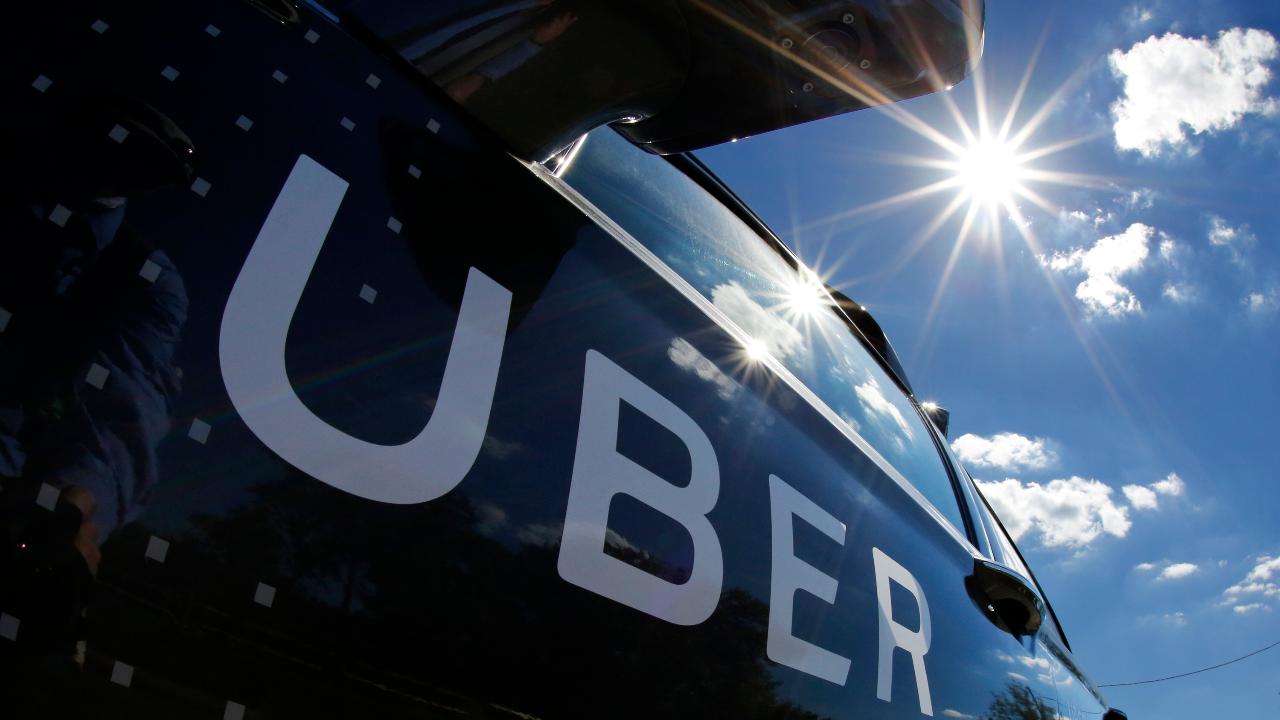Malcolm Gladwell: Self-driving vehicles could make traffic worse, pose cybersecurity risk
AUSTIN, Texas -- The world’s most innovative companies are betting billions of dollars that self-driving vehicles will revolutionize the way humanity travels, but some critics, including best-selling author Malcolm Gladwell, warn the promising technology poses serious risks without proper oversight and regulation.
Amazon, Google, Uber and Tesla are just a few of the firms that have invested in self-driving vehicles in recent years. Proponents, including CEO Chris Urmson of the Amazon-backed startup Aurora, argue that autonomous vehicles will dramatically reduce fatal car accidents, improve traffic flow and provide commuters with hours of free time that they would have otherwise spent driving.
While Gladwell agrees that self-driving cars will help to prevent many of the roughly 40,000 deaths that occur in car accidents in the U.S. each year, he argues the threat of hackers targeting self-driving vehicles poses a new set of risks. Gladwell, who served as executive producer of the documentary “Autonomy,” argues that Silicon Valley has been “a little too blasé” about cybersecurity risks despite recent high-profile breaches affecting tech leaders such as Facebook -- and even the National Security Agency.
“If every car on the road is automated and someone hacks in and creates a 200-car pileup, that seems to be a reasonable thing to worry about,” Gladwell said during a panel discussion at the South By Southwest conference in Austin, Texas.
While self-driving vehicles have yet to experience a major cybersecurity breach, several other incidents have raised questions about the technology. Uber temporarily suspended its self-driving vehicles tests after one of its prototypes fatally struck a pedestrian in Arizona. Tesla has implemented several updates to its “Autopilot” program – which handles basic driving tasks but still requires human oversight – to remind drivers to keep their hands on the wheel after it was linked to several accidents, including a fatal crash last year in Mountain View, California.
Cybersecurity risks
Urmson’s firm, Aurora, raised more than $530 million from investors that included Amazon and Sequoia Capital last month. Asked about Aurora’s approach to cybersecurity, he said the firm is still “early in the development of the technology.” While Urmson said self-driving technology could significantly reduce the 95 percent of accidents that occur due to human error, he admitted that threat of cybersecurity failure introduces a new set of concerns to the transportation sector.
“Inevitably, we will introduce new failure modes,” Urmson said. “We will have accidents that now occur that would not have occurred because of human driving. As a society, we have to make that trade, in the same way when we went from riding horses to driving cars, we had a whole new set of injuries.”
Gladwell, who sees a catastrophic accident involving a failure of self-driving technology as a virtual inevitability in the coming years, pointed to Edward Snowden’s breach of the NSA’s servers as proof that no system – not even one protected by the nation’s leading cybersecurity experts – is totally safe from a hack.
“If the NSA can’t protect itself, who can? Aren’t they about as good and as motivated as anyone would be to have sufficient and impregnable cybersecurity defenses?” Gladwell said. “It’s not that there’s insufficient effort being devoted toward cybersecurity. Maybe there is something fundamentally about many of these connected systems that makes them indefensible.”
Traffic trouble
Urmson and other innovators in the space envision a future where roadways are safer, less congested and self-driving cars have all but eliminated the human responsibility to find parking. Rather than having to focus on the road or sitting in hours of Los Angeles traffic, a commuter could check their email or watch a movie.
He expects self-driving technology to enter the market through mobility services, rather than people purchasing their own autonomous cars.
“It would be dramatically easier [to bring self-driving vehicles to market] if we could snap our fingers and say, ‘no more cars on the road,’” Urmson said. “But I don’t think that’s real.”
But Gladwell isn’t convinced that self-driving technology will finally solve the traffic congestion that has long plagued major cities like New York and Los Angeles. As an example, he suggests that an influx of self-driving vehicles alongside existing traditional cars would clog streets even further.
For example, passengers in autonomous vehicles could simply step out of the vehicles and send them to look for parking on crowded city streets indefinitely, exacerbating the problem. Gladwell placed the onus on politicians to set up regulations that will address these problems before they can occur.
“Traffic is the great limiting factor in urban America – we waste way too much time getting to places and sitting in congested streets,” Gladwell said. “If it’s not done right, this technology makes congestion worse.”
Self-driving tech is coming
Even with looming security concerns, self-driving technology is moving toward the market at a breakneck pace. Aurora’s most recent investment round valued the company at more than $2 billion, though its vehicles have yet to hit the market.
Tesla CEO Elon Musk said earlier this year that he expects his company to achieve fully autonomous driving by the end of 2019, meaning that its vehicles will be able to conduct trips from pickup to parking without human oversight. Once achieved, the technology would still need regulatory approval before it can operate on the streets.
CLICK HERE TO GET THE FOX BUSINESS APP
Urmson said Aurora is still working to perfect its vehicles, conducting tests in multiple markets to shore up artificial intelligence in the wake of the deadly Uber accident.
“The promise of this technology is this ability to have vehicles that are safer than human drivers. … we’re not there yet,” Urmson said.




















